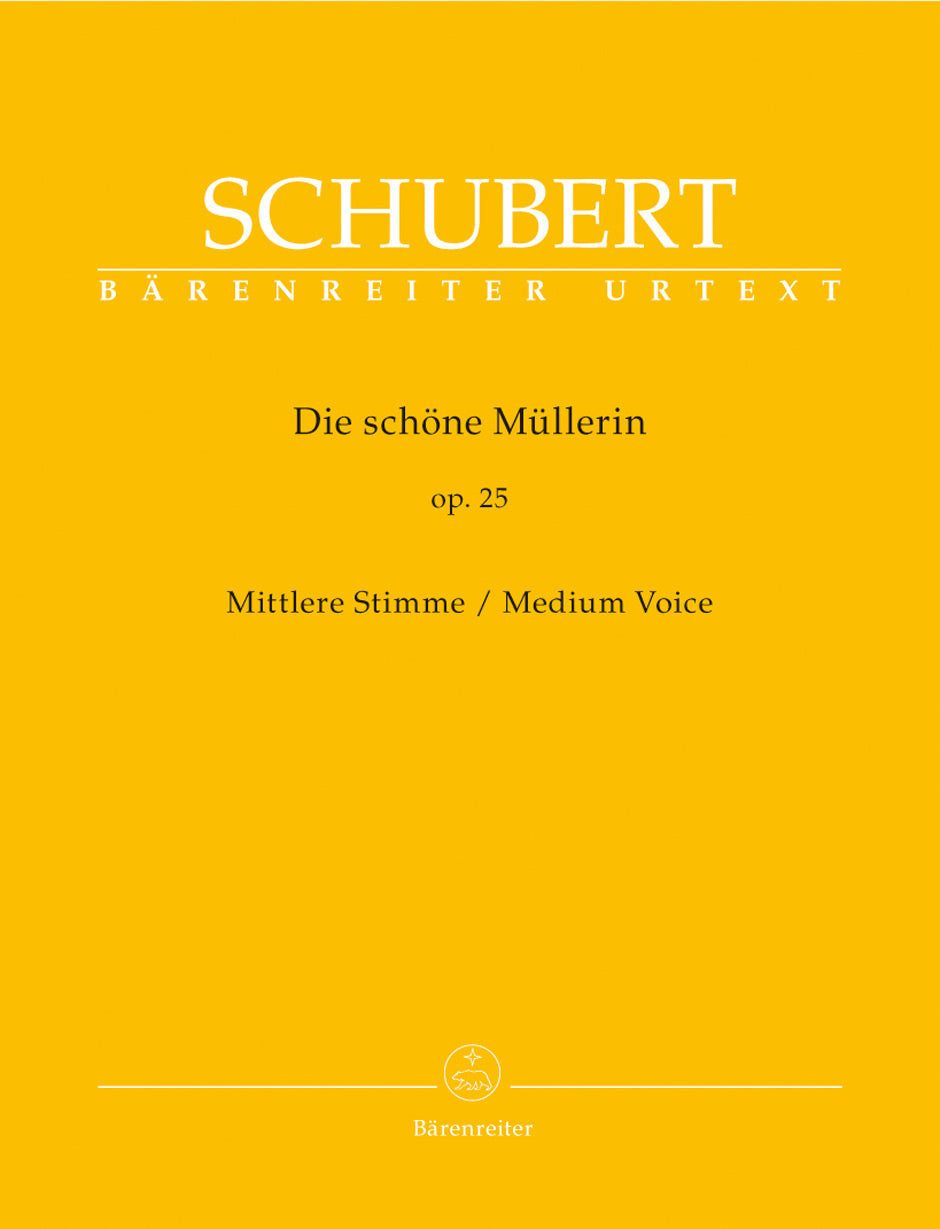


BARENREITER - 345062
Schubert Die schöne Müllerin op. 25 D 795 (Medium Voice)
Composer: Franz Schubert
Publisher: Bärenreiter
Instrumentation: Voice
Binding: Stapled
Dimensions: 11.8 in x 9.1 in
Pages: 55
Schubert Die schöne Müllerin op. 25 D 795 (Medium Voice)
Juilliard Store
144 West 66th Street
New York NY 10023
United States
Choose options
Schubert Die schöne Müllerin op. 25 D 795 (Medium Voice)
Juilliard Store
144 West 66th Street
New York NY 10023
United States
Schubert Die schöne Müllerin op. 25 D 795 (Medium Voice)
Juilliard Store
144 West 66th Street
New York NY 10023
United States
Editor: Dürr, Walther
Orchestral scoring : mivoice/piano
Language(s) of work: D
Language(s) of text: D
Product format: singing score, Urtext edition
Binding: Stapled
Pages / Format: XIX, 55 - 30,0 x 23,0 cm
It was published in its final form in 1820 by Wilhelm Müller in the collection „Sieben und siebzig Gedichte aus den hinterlassenen Papieren eines reisenden Waldhornisten“.
At that time the cycle included 23 poems. Schubert omitted three poems as well as a prologue and epilogue in his setting, thereby overriding the irony and pessimistic ending intended by the poet.
Schubert’s composition was published in five books between February and August 1824.
The first lieder in the cycle are happy and composed with a forward momentum, characteristics which are also reflected in the virtuoso piano accompaniment. The second part of the song cycle turns into resignation, melancholy and impotent rage and is similar to Schubert’s “Winterreise” in its longing for death.
